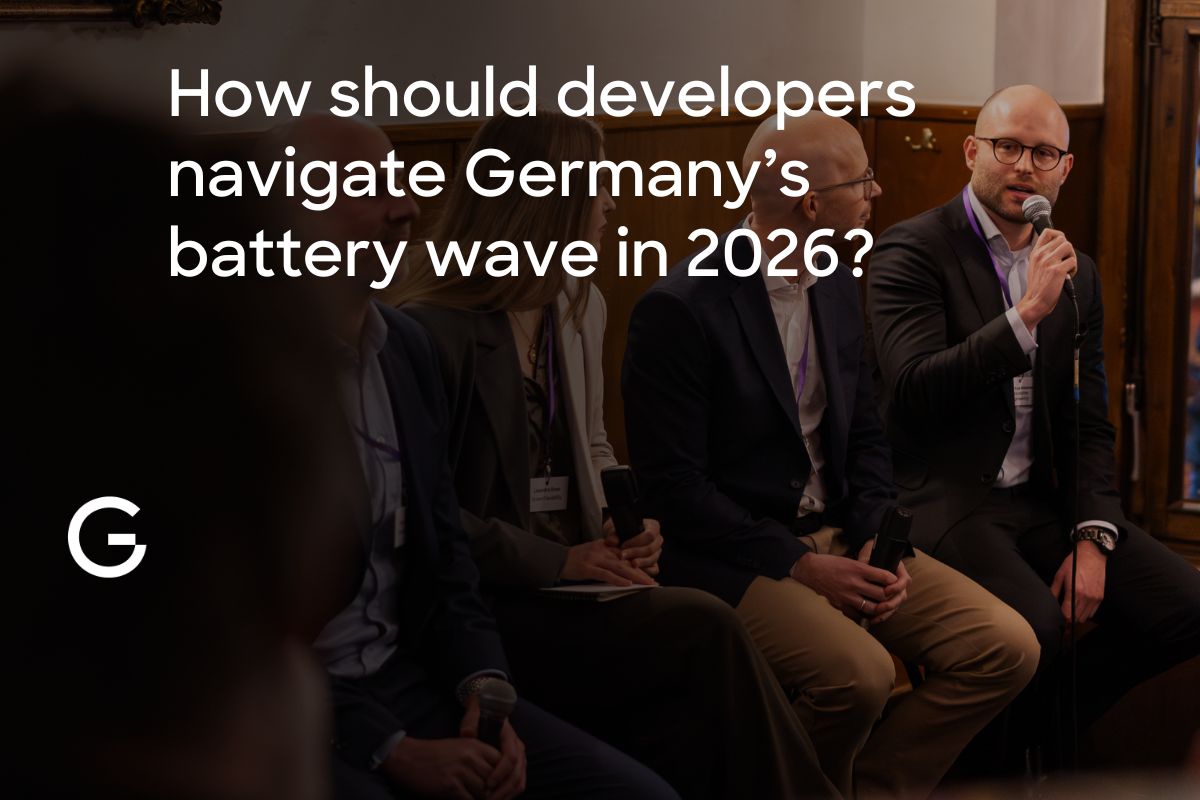What’s Next for Energy Flexibility in GB? EV Fleets, Storage & V2X at Gridcog Unplugged

Last week our London team hosted the third edition of Gridcog Unplugged. We brought together a room full of energy experts in Shoreditch for a candid discussion on flexibility in the GB energy market - with a particular focus on EV fleets and battery storage. It was a fun evening of energy chats, beers and good company.
We kicked off with a lively panel discussion featuring three energy leaders who offered differing perspectives:
- Andy Rees, Power, Flexibility & Optimisation Director at VEV, one of the UK’s leading fleet electrification providers;
- Karl Bach, CEO & Co Founder of Axle Energy, one of the UK’s fastest growing optimisers of BtM flexibility assets;
- Will Maden, Co-Founder of Fuuse, a pioneer in Vehicle to Grid (V2G).
I had the pleasure of moderating the discussion, which featured plenty of healthy disagreement - a good reflection of the pace of change in the GB energy scene!
If you missed us last Thursday here are a few of our key takeaways from the event.

Flexibility - we won’t be talking about it in 10 years time, it will just happen
A clear consensus emerged amongst our panellists: the goal is to make flexibility effortless for users, from fleet operators to households to utilities... One comment from the audience captured the mood “in 10 years we shouldn’t be talking about flexibility and rather it will just happen”.
Regulatory progress like P415 was welcomed, with P483 flagged by one panellist as a key next step for unlocking residential flex. Ensuring user confidence — especially around state of charge — also remains critical. The assets have a primary job to do and flex can’t get in the way of that.
A key topic was that the financial impact of flexibility will drive more consumer engagement. With a panelist remarking that “money talks” and if as an industry we can prove that the value of participating in wholesale energy and flexibility markets is worth it, then assets and customers will come.
NESO’s Future Energy Scenarios predictions are achievable
Our panellists also discussed the feasibility of NESO’s Future Energy Scenarios (FES) predictions for flex including battery storage, DSR and flex from V2X. The view from the panel was that these numbers were very achievable, especially when looking at the numbers from 2030 and 2035. With EV adoption and falling battery storage costs the sentiment was that we will have the assets - the challenge will be ensuring that those assets are equipped with the right controls and have the market access to unlock that flexibility.
There was also some debate about the extent to which smart charging - as distinct from V2X - is already providing significant flexibility. Smart charging is already taking demand off the system at times of stress and charging at times of surplus generation. It’s certainly interesting to consider where the topic of flexibility begins and ends!

The tipping point for V2X? Still up for debate
A topic that sparked contrarian views amongst our panellists was V2X, with opinions ranging from “the time is now” to “it’s still five years away”.
The more bullish perspectives pointed to a number of recent successful trials and an increasing mix of OEMs offering V2X support, for both the vehicles and the chargers. It’s not just the Nissan Leaf these days! The bears noted that standards and regulations were still very much a work in progress, and that other asset classes - like stationary storage - were less complex and already well positioned to be deployed at scale.
To the regulators the message in the room was very much that more regulation in this space will unlock scale and prevent bespoke solutions that only work for some vehicle types.
One point of agreement: fleets will lead the way, thanks to their predictable schedules and cost sensitivity.
In summary, there’s still work to do to unlock flexibility at scale — but the energy and optimism in the room were undeniable. Thanks again to our excellent panellists and all who joined the conversation.
We’ll be back with another Gridcog Unplugged later this year — stay tuned!



.png)



